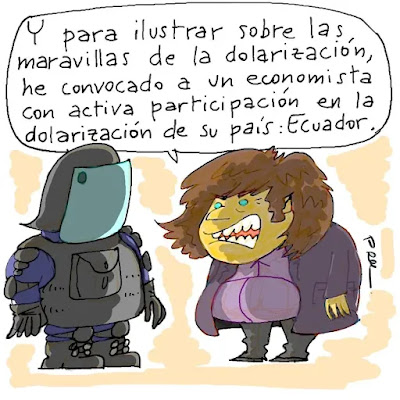Donald Trump will be the first president since Grover Cleveland, also a New Yorker, to have two non consecutive terms in the presidency. The reasons for this are beyond my abilities to analyze, but it is clear that he did get the votes of people in the lower levels of income, that had voted for Biden in 2020 (but not for Hillary in 2016) and went decisively for Trump. One may say that the populist vote in favor of tariffs, often associated with working class interests, was part of the explanation. But Bidenomics (on that see this and this) had incorporated that and more.
I do think that economic factors were central for the outcome of the election. However, I think there is a simplification in suggesting it was inflation. Many people have suggested that, including many progressives, like, for example, Doug Henwood, which is correct in emphasizing the mistake of the Harris campaign in veering right (and that perhaps Dems will mistakenly veer even more to the right).
However, I tend to think that when people say that inflation is one of their main concerns, and that should be taken seriously, what they mean is that their wages are low. Nobody would care if inflation was even a bit higher if their wages increased significantly above inflation. And sure enough the minimum wage that has not increased since 2009 has been at historical lows. However, once we look at the earnings from those at the bottom, as shown below, we that while they did fall from May 2020, even before inflation accelerated, until June 2022, they have recovered and are higher than before the acceleration of inflation. However, they are essentially barely above the levels of the early 1970s.
.png)
In other words, real wages recovered, and have been growing more or less since the second Clinton administration, but they have been essentially stagnant, and there are many reasons for the working class to be angry. You could use other variables to show the same (without the issue of inflation), like the share of wages and salaries in Gross Domestic Income (below) that fell from about 50 to close to 42%. Bernie's insurgency on the left was no mere accident, and its interdiction within the Democratic Party has made it possible for a Era of Trumponomics, as it is now clear.
What working class people, that flocked to Trump in 2016 and now, and had voted for Biden in 2020 (and Obama in 2008, and also in 2012 when the candidate was Romney), are saying is our incomes are insufficient. Not that inflation is high. The working class is not Monetarist, even if some of their intellectuals are. Why my caution on inflation, you may ask. Because the main lesson from
mainstream Dems will be that inflation caused the defeat (
echoed by many progressives), rather than economic hardship and inequality, and that this, in turn, was caused by excessive fiscal expansion, and that balanced budgets are needed. Exactly the wrong lesson.
Inflation was not caused by the fiscal packages, it did not cause the defeat, and it actually is back down and, for the most part, excepting supply-side shocks, will remain low, since the bargaining power of the working class is weak (soon to be weaker), and there is NO significant distributive conflict (all stuff I said on my piece in Catalyst at the beginning of the inflationary bout in the summer of 2022).
In fact, the anti-labor stance (so much for his populist credentials) is the defining characteristic of Trumponomics. The tax cuts for the wealthy are recycled supply-side economics. The tariffs, which everyone sees as his hallmark, and something that he introduced in his first presidency, and in some ways has been maintained by Biden, are less relevant in some ways. First, contrary to some hyperventilating the tariffs will not reignite inflation, but would at worst increase the price level. Second, and more importantly, it is unclear that this is not like the infamous wall, that he would have built, and Mexico would have paid for, in his first term, more imaginary than real. His possible Treasury Secretary has already said in the Financial Times that: "Trump’s pledge to impose sweeping tariffs on imports as a 'maximalist' threat that could be altered during talks with trading partners." In his words: "It’s escalate to de-escalate."
Tariffs are just a tactic to deal with China. The anti-labor stance will be seen soon at full display in the National Labor Relations Board, that during Biden has been the most pro-labor since the 1960s, perhaps. Where we should expect a tremendous backlash, other than labor issues, is on health, and immigration, and these again have significant impact on the working class. His government will make things worse for workers, and will open the opportunity for left wing populism. If the Dems learn the lesson. A big if. Hope springs eternal.



.png)
.png)
